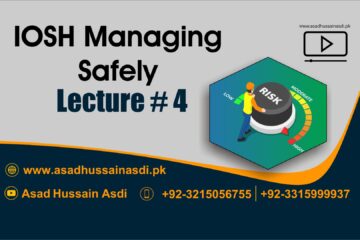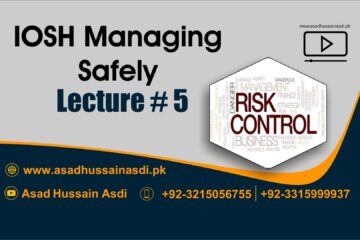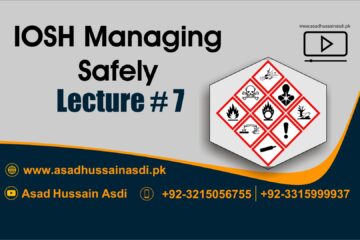ProQual Level 6 Diploma in Local Democracy Course in Pakistan || Registration Open
Registration Open= +92-3315999937, +92- 3215056755 (WhatsApp Only)
Introduction
This qualification is aimed at experienced Democratic Services Officers who possess an indepth knowledge of the main democratic functions, but wish to expand that knowledge and
understanding and also undertake a substantive piece of work in a specialist area.
The awarding body for this qualification is ProQual Awarding Body and the regulatory body
is the Office of Qualifications and Examinations Regulation (Ofqual). The specification for
this qualification has been approved by the Welsh Government for use by centres in Wales
and by the Council for the Curriculum Examinations and Assessment (CCEA) for use by
centres in Northern Ireland.
This qualification has been accredited onto the Regulated Qualifications Framework (RQF).
Qualification Profile
Qualification title ProQual Level 6 Diploma in Local Democracy
Ofqual qualification number 600/2640/6
Level Level 6
Total qualification time 410 hours
Guided learning hours 215
Assessment
Pass or fail
Internally assessed by centre staff
External quality assurance by ProQual External Verifiers
Qualification start date 01/08/11
Qualification end date
Entry Requirements
There are no formal entry requirements for this qualification.
Centres should carry out an initial assessment of candidate skills and knowledge to identify
any gaps and help plan the assessment.
ProQual, October 2017
Level 6 Diploma in Local Democracy
4
Qualification Structure
Candidates must complete ALL of the Mandatory units, plus a minimum of ONE Optional
unit.
Mandatory Units – complete ALL units
Unit Reference
Number Unit Title Unit
Level
J/503/3262 Structure and functions of local government 4
R/503/3815 The law and practice of decision making 4
L/503/3263 Understand your own local working environment 4
D/503/3896 Applying legislation in a local democracy 5
J/503/3892 Research planning 6
M/503/3837 Reflective learning and evaluation 5
Optional Units – complete a minimum of ONE unit
Unit Reference
Number Unit Title Unit
Level
T/503/3869 Governance arrangements 6
K/503/3870 Overview and scrutiny 6
M/503/3871 Regulatory framework 6
T/503/3872 Ethical framework 6
J/503/3875 Member development 6
H/503/3883 Member support 6
F/503/3888 Civic support 6
ProQual, October 2017
Level 6 Diploma in Local Democracy
5
Centre Requirements
Centres must be approved to offer this qualification. If your centre is not approved please
complete and submit form ProQual Additional Qualification Approval Application.
Staff
Staff delivering this qualification must be appropriately qualified and/or occupationally
competent.
Assessors/Internal Quality Assurance
For each competence-based unit centres must be able to provide at least one assessor and
one internal quality assurance verifier who are suitably qualified for the specific
occupational area. Assessors and internal quality assurance verifiers for competence-based
units or qualifications will normally need to hold appropriate assessor or verifier
qualifications, such as:
- Award in Assessing Competence in the Work Environment
- Award in Assessing Vocationally Related Achievement
- Certificate in Assessing Vocational Achievement
- Award in the Internal Quality Assurance of Assessment Processes and Practices
- Certificate in Leading the Internal Quality Assurance of Assessment Processes and
Practices
Support for Candidates and Centres
Materials produced by centres to support candidates should:
- enable them to track their achievements as they progress through the learning
outcomes and assessment criteria;
- provide information on where ProQual’s policies and procedures can be viewed;
- provide a means of enabling Internal and External Quality Assurance staff to
authenticate evidence.
Assessment
Assessment is the process of measuring a candidate’s skill, knowledge and understanding
against the standards set in the qualification.
This qualification must be assessed in line with Justice Sector Assessment Strategy. It is
internally assessed by an appropriately experienced and qualified assessor.
ProQual, October 2017
Level 6 Diploma in Local Democracy
6
Each candidate is required to produce a portfolio of evidence which demonstrates their
achievement of all of the learning outcomes and assessment criteria for each unit.
Learning outcomes set out what a candidate is expected to know, understand or be able to
do.
Assessment criteria specify the standard a candidate must meet to show the learning
outcome has been achieved.
Learning outcomes and assessment criteria are included in this document from page 8
onwards.
Evidence can include:
- observation report by assessor
- assignments/projects/reports
- professional discussion
- witness testimony
- candidate product
- worksheets
- record of oral and written questioning
- Recognition of Prior Learning
Internal Quality Assurance
An internal verifier confirms that assessment decisions made in centres are made by
competent and qualified assessors, that they are the result of sound and fair assessment
practice and that they are recorded accurately and appropriately.
Adjustments to Assessment
Adjustments to standard assessment arrangements are made on the individual needs of
candidates. ProQual’s Reasonable Adjustments Policy and Special Consideration Policy sets
out the steps to follow when implementing reasonable adjustments and special
considerations and the service that ProQual provides for some of these arrangements.
Centres should contact ProQual for further information or queries about the contents of the
policy.
Results Enquiries and Appeals
All enquiries relating to assessment or other decisions should be dealt with by centres, with
reference to ProQual’s Enquiries and Appeals Procedures.
ProQual, October 2017
Level 6 Diploma in Local Democracy
7
Certification
Candidates who achieve the requirements for qualifications will be awarded:
- A certificate listing all units achieved, and
- A certificate giving the full qualification title –
ProQual Level 6 Diploma in Local Democracy
Claiming certificates
Centres may claim certificates for candidates who have been registered with ProQual and
who have successfully achieved the requirements for a qualification. All certificates will be
issued to the centre for successful candidates.
Unit certificates
If a candidate does not achieve all of the units required for a qualification, the centre may
claim a unit certificate for the candidate which will list all of the units achieved.
Replacement certificates
If a replacement certificate is required a request must be made to ProQual in writing.
Replacement certificates are labelled as such and are only provided when the claim has
been authenticated. Refer to the Fee Schedule for details of charges for replacement
certificates.
ProQual, October 2017
Level 6 Diploma in Local Democracy
8
Learning Outcomes and Assessment Criteria
Unit J/503/3262: Structure and Functions of Local Government
Candidates must demonstrate the required level of knowledge and understanding in
relation to the structure and functions of local and central government. This includes
identifying links between the tiers, the different types of national governments within the
UK and explaining the functions which are undertaken.
Learning Outcomes – the learner will Assessment Criteria
- Understand the structure of local and
central government
1.1 Describe the key functions of central
government
1.2 Evaluate the different forms of national
government in the UK
1.3 Describe the relationship between
national and local government in a
country in the UK
1.4 Explain the importance of local
government in a country in the UK
1.5 Describe the sources of funding for local
government
- Understand the functions of local
government
2.1 Identify the different types and tiers of
authorities in local government in each
country in the UK
2.2 Explain the differences and assess the
benefits of the functions carried out by
the different types and tiers of
authorities in local government
ProQual, October 2017
Level 6 Diploma in Local Democracy
9
Learning Outcomes – the learner will Assessment Criteria
2.3 Explain situations where local authorities
enter into joint arrangements to
discharge their functions and assess the
benefits of this to the authorities taking
part
Assessment
Candidates are required to undertake appropriate research to enable the completion of an
assignment on the module followed by a professional discussion.
ProQual, October 2017
Level 6 Diploma in Local Democracy
10
Unit R/503/3815: The Law and Practice of Decision Making
Candidates must demonstrate the required level of knowledge and understanding in
relation to key pieces of legislation which establish the decision making framework of the
- This will include a focus on the development and operation of local government law,
including the impact of case and common law. Candidates will have to explain the impact of
key principles on local government decision making.
Learning Outcomes – the learner will Assessment Criteria
- Understand the key pieces of legislation
that establish the decision making
framework in the UK
1.1 Identify the key pieces of legislation
which control local government decision
making
1.2 Analyse the development of local
government law and its impact on
decision making today
- Understand the key principles of decision
making law and practice
2.1 Explain the importance and assess the
influence of case and common law on
decision making in local government
2.2 Explain the purpose and evaluate the use
of:
- well being powers
- natural justice
- the Wednesbury principle
- ultra vires
with regard to decision making in local
government
Assessment
Candidates will be required to undertake appropriate research to enable the completion of
an assignment on the module followed by a professional discussion.
ProQual, October 2017
Level 6 Diploma in Local Democracy
11
Unit L/503/3263:
Understand your own local working environment
Candidates must demonstrate knowledge relating to the key features of the local working
environment including functions undertaken, the organisational priorities and key local
partners. This will include a focus on the governance arrangements, including election
arrangements for all tiers of representatives linked to the local area.
Learning Outcomes – the learner will Assessment Criteria
- Understand the key features of your local
working environment
1.1 In relation to the local government
administrative area in which your
organisation operates, describe the
following key features :
- geographical
- environmental
- economic
- social
- political
1.2 Identify the responsibilities and
functions of the public organisation in
which you work
1.3 Describe the aims, objectives and
priorities of the public sector
organisation in which you work and
assess how these impact upon work
within the area of Democracy Support
1.4 Identify the key bodies with whom the
organisation you work for, has
partnership arrangements with
- Understand the governance and
representational arrangements in operation
within your local working environment
2.1 Describe the key features of your
organisation’s decision making process
2.2 Describe the election cycles in operation
and their frequency for elected
representatives in your area
ProQual, October 2017
Level 6 Diploma in Local Democracy
12
Learning Outcomes – the learner will Assessment Criteria
2.3 Assess the impact over recent years local
political groups have played in governing
your local working environment
2.4 Identify the members of parliament
(both national and European) for your
area and explain their relationship with
the organisation you work for
Assessment
Candidates are required to undertake appropriate research to enable the completion of an
assignment on the module followed by a professional discussion.
ProQual, October 2017
Level 6 Diploma in Local Democracy
13
Unit D/503/3896
Applying legislation in a local democracy
This unit covers the knowledge and understanding in relation the application of legislation in
a democratic context. Its purpose is to understand the impact of decisions at a national level
and how these can impact on work at a lower level.
Learning outcomes – the learner
will
Assessment criteria – the learner can:
- Understand how the decisions of
central government can impact on
the work of the democracy support
function in local government.
1.1 explain how new governance legislation and changes to
existing legislation have affected the work of a democracy
support function.
1.2 assess the impact on a particular local authority, where
the governance arrangements have changed to a different
type.
- Understand how governance
requirements are reviewed and introduced
into local government.
2.1 explain how proposals for democratic change are
drafted, consulted upon and passed into legislation.
2.2 assess how consultation and collaboration has affected
the outcome of democratically related policies and
legislation.
- Understand how the role of
political parties and their policies
has affected the work of a
democracy support function, both
locally and nationally.
3.1 assess how national changes in political leadership
or government, have impacted on the work of a
democracy support function.
3.2 assess how changes in leadership or political
control, of a Local Authority have impacted on the work
of a democracy support function.
Assessment
This unit will be assessed by a marked assignment followed by a professional discussion.
ProQual, October 2017
Level 6 Diploma in Local Democracy
14
Unit J/503/3892
Research planning
This unit covers the understanding required to plan a programme of research,
understanding the different types of research methodology, how to evaluate research
sources and how to present research conclusions.
Learning outcomes
The learner will
Assessment criteria
The learner can:
- Understand how to identify an
area for research relevant to own
work area and job role.
1.1 Select an appropriate research area for investigation and
analyse the reasons for the choice.
1.2 Critically evaluate how enhanced knowledge of this area
and research undertaken could contribute to development
of own skills and organisational practices.
- Understand different types of research
methodology and how they area applied.
2.1 Review and critically evaluate a range of methods of
qualitative and quantitative data collection.
2.2 Identify, outline and assess different research techniques
and methodologies.
2.3 Identify and critically analyse appropriate sources,
relevant literature, legislation and comparator organisations.
2.4 Critically examine how the methods selected facilitate
own research plan
- Develop an appropriate and
detailed plan for the research.
3.1 Develop a detailed research proposal and timescale
for its completion.
3.2 Assess how the research proposal supports own
identified learning and development.
3.3 Formulate own learning and development needs and
objectives, to be assessed at the conclusion of the research.
- Understand how to evaluate and
review research sources
4.1 Select appropriate methods for research analysis.
4.2 Critically analyse the research methods chosen.
4.3 Review and evaluate the reliability and quality of sources
of evidence.
4.4 Identify any potential gaps in research to be obtained and
assess alternative research methods can be utilised.
ProQual, October 2017
Level 6 Diploma in Local Democracy
15
4.5 Explain how to evaluate research conclusions against
research proposal.
- understand how to present
research conclusions
5.1 Compare and contrast a range of methods for presenting
research conclusions.
5.2 Explain how to reference appropriate sources correctly in
own work.
5.3 Explain to utilise bibliography appropriately within
research.
Assessment
This unit will be assessed by a marked assignment followed by a professional discussion in
addition to evidence of competence including work products which relate to the research
assignment and supporting documents.
ProQual, October 2017
Level 6 Diploma in Local Democracy
16
Unit M/503/3837
Reflective learning and evaluation
The aim of this unit is to understand how a learner can take responsibility for own
personal and professional development and to understand the ways in which
undertaking a research study can inform a learner’s own practice.
Learning outcomes
The learner will:
Assessment criteria
The learner can:
- Understand how to take
responsibility for own personal and
professional development.
1.1 Describe how to identify own development needs and
learning objectives.
1.2 Explain the different types of development opportunities
which could be used to meet identified needs.
1.3 Explain how these can be recorded and monitored
effectively.
- Understand the ways in which
undertaking a research study can inform
own practice.
2.1 Identify a completed research study undertaken by self.
2.2 Reflect critically on own learning and development
against pre identified research plan needs and objectives.
2.3 Critically evaluate the benefits of undertaking the
research study to self and the organisation.
2.4 Describe how to share identified findings and good
practice both within the organisation and in the external
environment.
- Identify potential areas for future
study.
3.1 Reflect and critically evaluate research findings to
identify areas of further development.
3.2 Analyse how these areas of further development
can be researched in the sector.
Assessment
A written reflective evaluation report.
ProQual, October 2017
Level 6 Diploma in Local Democracy
17
Unit T/503/3869
Governance arrangements
The learner will have the chance to explore the operation of the organisation’s leadership
arrangements under an executive arrangements or committee based administration. The
dissertation project would look at and assess the Strong Leader option, the Elected Mayor
model and the Committee based system.
Learning outcomes
The learner will
Assessment criteria
The learner can:
1 Understand the key features
of the options for executive
arrangements which operate in
local government.
1.1 Explain the origins of executive governance and the
sources of legislation that underpin the arrangements.
1.2 Identify the different options for executive
governance, giving examples as to where these operate.
1.3 Analyse the local choice functions and how these are
determined and implemented by local authorities.
- Understand the nature of the
Leader and Cabinet model of
Governance, in local
government.
2.1 Critically analyse the legislative requirements and
conditions that this model operates under.
2.2 Explain the procedures to be followed when
introducing and operating this model of governance.
2.3 Analyse the implications for local authorities in
implementing this model
- Understand the nature of the
Elected Mayor Model of
Governance, in local
government.
3.1 Explain the legislative requirements and conditions
that the Elected Mayor model operates under.
3.2 Explain the procedures to be followed when
introducing and operating this model of governance.
3.3 Analyse the impact for the electorate in
implementing this model of governance.
- Understand the nature of the
Committee based system of
governance, in local
government.
4.1 Explain the legislative requirements and conditions
that the committee based system of governance
operates under.
4.2 Explain the procedures to be followed when
introducing and operating this model of governance.
4.3 Analyse the impact of operating this system on the
decision making structure of a local authority.
ProQual, October 2017
Level 6 Diploma in Local Democracy
18
- Understand how Executive
and Committee based forms of
Governance operate in the
different countries in the UK.
5.1 Explain how the models of governance operate in
the different countries in the UK
5.2 Critically analyse the effect of the legislation
governing these arrangements
- Understand the differences
between different models of
Governance, in local
government.
6.1 Critically evaluate two different models of local
authority Governance, in operation in the UK.
6.2 Analyse the outcomes from that evaluation to
determine the appropriateness of the model for the
local authorities evaluated.
- Understand how Governance
in local government operates in
other parts of the world.
7.1 Identify a form of governance from a country outside
the UK.
7.2 Explain how that country’s model of governance
operates.
7.3 Critically evaluate that country’s model of
governance with a form of governance in operation in a
country in the UK.
Assessment
Written dissertation and professional discussion.
ProQual, October 2017
Level 6 Diploma in Local Democracy
19
Unit K/503/3870
Overview and scrutiny
The learner will need to challenge the various aspects of scrutiny and its place in public
life. It leads the learner to demonstrate an understanding of the political context of
overview and scrutiny and undertake a critical evaluation of that area. The learner will
then be asked to evaluate the differences between scrutiny at a local level and at a
national level.
Learning outcomes
The learner will
Assessment criteria
The learner can:
1 Understand the key features
and functions of Overview and
Scrutiny in the public sector.
1.1 Explain the origins of Overview and Scrutiny and the
sources of legislation that underpin and empower Overview
and Scrutiny in the public sector.
1.2 Identify and assess the different functions of Overview and
Scrutiny.
1.3 Critically analyse the structural differences and
effectiveness of Overview and Scrutiny in different tiered
Authorities in local government.
1.4 Compare and contrast the cultural differences in delivering
Overview and Scrutiny in different organisations within the
public sector.
- Understand the differences and
challenges posed by internal and
external scrutiny.
2.1 Critically analyse the difference between internal and
external scrutiny and identify the challenges this provides to
different organisations within the public sector..
2.2 Identify and evaluate the different types of external
scrutiny that exist.
- Understand the political context
of Overview and Scrutiny.
3.1 Analyse the impact of Overview and Scrutiny in with a
political environment
3.2 Critically analyse the relationship between overview and
scrutiny and decision making and the factors which influence
and challenge that relationship.
3.3 Explain how Overview and Scrutiny can address these
challenges.
ProQual, October 2017
Level 6 Diploma in Local Democracy
20
- Understand the techniques and
lines of enquiry that can be used in
undertaking Overview and Scrutiny.
4.1 Evaluate and assess the different techniques and
methodologies which Overview and Scrutiny might employ
4.2 Identify best practice in Overview and Scrutiny and
interpret how this could be used by other public sector
organisations.
- Understand the differences,
similarities and relative benefits
between Overview and Scrutiny at a
local and national level.
5.1 Analyse critically how Overview and Scrutiny in a local
government context differs from scrutiny in a parliamentary
context.
5.2 Critically evaluate how local government Overview and
Scrutiny delivered through an executive arrangements system
differs from scrutiny under the committee based system.
- Understand the benefits that
Overview and Scrutiny can provide
for the community and the public
sector.
6.1 Explain how outcomes from Overview and Scrutiny could
be measured and evaluated to assess their benefits to the
community.
6.2 Using a live example of scrutiny activity, analyse the
impact of identified outcomes on the organisation, its
partners and the community.
- Understand how Overview and
Scrutiny in local government
operates in other parts of the
world.
7.1 Identify a country with from outside the UK, with an
alternative form of Overview and Scrutiny.
7.2 Explain how that country’s model of overview and scrutiny
operates.
7.3 Critically evaluate that model of Overview and Scrutiny, to
identify the effectiveness of that model compared to another
model , from within a country in the UK.
Assessment
Written dissertation and professional discussion.
ProQual, October 2017
Level 6 Diploma in Local Democracy
21
Unit M/503/3871
Regulatory framework
This unit will provide learners with a critical understanding of exactly what is meant by
the Regulatory Framework and in doing so explain the various regulatory and quasi
judicial contexts of local democracy. They will then be asked to critically analyse how
this differs between local authorities of different tiers. The role of the public and other
stakeholders is also explored.
Learning outcomes
The learner will
Assessment criteria
The learner can:
- Understand the origins of a
democratic area of the
regulatory framework within
local government
1.1 Identify what government legislation is in place to
govern the chosen democratic area of the regulatory
framework
1.2 Explain the role of the legislation and relevant case
law on the development and implementation of
relevant policy for the chosen democratic area of the
regulatory framework in local government
1.3 Assess the methods in place to deal with
applications and appeals submitted within the chosen
democratic area of the regulatory framework
- Understand the quasi judicial nature
of the regulatory framework in local
government
2.1 Explain what is meant by ‘due process’ and analyse
its importance in the regulatory framework.
2.2 Analyse the procedures for reviewing and
challenging decisions made within the chosen
democratic area of the regulatory framework
2.3 Assess the impact of the key elements of ‘common
law’ on the chosen democratic area of the regulatory
framework
2.4 Critically analyse the impact of the European
Convention on Human Rights on the chosen democratic
area of the regulatory framework.
- Understand the implementation of
regulatory functions within the
wider political management
framework of local government
3.1 Explain the differences in exercising the
statutory functions of the chosen democratic area
with that of other local government committees.
ProQual, October 2017
Level 6 Diploma in Local Democracy
22
3.2 Analyse the procedures in place to deal with
delegated decisions within the chosen democratic area
of the regulatory framework.
3.3 Evaluate the role of the authority, members and
officers within the committee process for the chosen
democratic area within the regulatory framework
3.4 Analyse the importance of the independent and
impartial role of the Democracy Support Officer in
supporting the regulatory framework.
- Understand the practical
operation of regulatory
framework within local
government
4.1 With regard to the chosen element of the regulatory
framework and using examples:
- Compare and contrast different methods of
implementation across different types and tiers
of local authority
- Assess the role of Elected Members in
representing their constituents
- Explain the scope which exists locally for
influencing the decisions made
- Explain how this democratic element fits within
the wider context of the regulatory framework.
- Assess the role this element plays in helping
reach open, transparent and sound decisions.
- Understand how the public
and stakeholders interact with
the regulatory framework in
local government.
5.1 With regard to the chosen democratic element of
the regulatory framework and using examples:
- Explain who the main stakeholders are, their
role and their rights.
- Analyse the procedures and practices which are
followed in dealing with the public and
stakeholders.
- Critically assess how decisions taken within the
regulatory framework are communicated to the
public and stakeholders.
ProQual, October 2017
Level 6 Diploma in Local Democracy
23
6 Understand how the
regulatory framework operates
in other parts of the world
6.1 With regard to the chosen democratic element of
the regulatory framework, and using examples:
- Identify a country from outside the UK, with a
comparable regulatory process
- Explain how that country’s model of regulatory
process operates including the role of legislation
in governing local policy, implementation and
practice
- Critically evaluate that regulatory framework, to
identify the effectiveness over that process
compared to another process.
Assessment
Written dissertation and professional discussion.
ProQual, October 2017
Level 6 Diploma in Local Democracy
24
Unit T/503/3872
Ethical frameworks
This unit will ask the learner to demonstrate an understanding of the ethical standards
required from members (both co-opted and elected) and also look at the various protocols
and codes of conduct and their significance in the public sector. A learner will have to assess
good ethical governance and the various statutory provisions and behaviours which
underpin the Framework.
Learning outcomes
The learner will
Assessment criteria
The learner can:
- Understand the key features
of an Ethical Framework within a
system of corporate governance.
1.1 Explain the meaning of “corporate governance” as it
applies to a local authority.
1.2 Analyse the relationship between ethical
governance and the Ethical Framework
1.3 Identify the statutory provisions, key documents and
stakeholders which provide ethical governance to local
authorities
1.4 Compare contrasting forms of ethical governance
in at least two local authorities in the UK.
- Understand the behaviours
necessary to underpin the
ethical framework.
2.1 Indentify the behaviours necessary to underpin the
ethical framework, both in relation to officers and
Members of the Authority.
2.2 Evaluate the support in place to encourage and
develop those behaviours.
2.3 Critically analyse any systems and sanctions in place
to challenge any inappropriate behaviours.
3.Understand the outcomes of
good ethical governance.
3.1 Assess the impact of good ethical governance on the
key features of openness, fairness, integrity,
transparency and mutual respect.
3.2 Demonstrate an understanding of the relationship
between these key features and public confidence in
the democratic process.
- Understand the impact of
ethical governance.
4.1 Critically evaluate the extent to which good ethical
governance and behaviours are embedded within at
least two local authorities.
4.2 Identify and critically evaluate any poor practice
which takes place.
ProQual, October 2017
Level 6 Diploma in Local Democracy
25
- Understand how ethical
governance operates in other
parts of the world.
5.1 Identify a country outside the UK, with an
established ethical framework.
5.2 Explain how that country’s ethical framework shapes
ethical governance within an a localised government
5.3 critically evaluate that model of ethical governance
to identify the effectiveness of that model compared to
ethical governance, from within a country in the UK.
Assessment
Written dissertation and professional discussion.
ProQual, October 2017
Level 6 Diploma in Local Democracy
26
Unit J/503
Member development
To understand and evaluate the principles under pinning learning and development
programmes. It will examine the differing roles of elected members and their related
training needs, together with the options for delivery of them. It will also include an
analysis of the importance of evaluation techniques.
Learning outcomes
The learner will
Assessment criteria
The learner can:
- Understand the principles underpinning
the development of learning and
development programmes for members
1.1 Explain the objectives of learning and development
programmes for members
1.2 Evaluate the factors of learning and development that
impact on:
- development
- delivery
- assessment and accreditation
1.3 Explain the importance of member involvement when
developing learning and development programmes
1.4 Evaluate the risks that need to be managed when
developing learning and development programmes for
members
1.5 Evaluate the role and importance of each phase of the
learning and development cycle
1.6 Analyse how different phases of the learning and
development cycle are used to enhance the experiences of
members in the process of learning
- Understand how arrangements for
providing learning and development
for councillors have changed across
local government
2.1 Assess the extent to which changes in the role of elected
members have impacted upon councillor training and
development
2.2 Critically analyse the expectations of elected members
regarding the development required to fulfil the role of
councillor
2.3 Assess the link between councillor development and
the achievement of an authority’s strategic
objectives
- Understand the differing roles of
elected members and associated
training needs
3.1 Identify the roles of a councillor in the leadership,
management and scrutiny of the Council and assess
the learning and development requirements linked
to those roles
3.2 Identify the role of a councillor in representing the
Council on partnership and external bodies and
assess the learning and development requirements
ProQual, October 2017
Level 6 Diploma in Local Democracy
27
linked to those roles
3.3 Identify the community representative and
leadership roles that a councillor may have and
assess the learning and development requirements
linked to those roles
3.4 Evaluate the development of role descriptions and
their effectiveness in councillor development
3.5 Explain how legislation and case law impact on the
development of councillors in undertaking their
statutory roles
- Understand the importance of a
framework for providing learning and
development for councillors
4.1 Identify good practice standards and charters
which shape member development across local
government
4.2 Critically analyse the role of good practice
standards and charters and assess their relevance in
forming a framework for councillor development
4.3 Analyse the relevance of good practice standards in
providing individual member development
- Understand how to effectively
provide and deliver learning
opportunities for members
5.1 Assess the role of individual and collective
member learning outcomes, in determining a
member development programme.
5.2 Evaluate the development and delivery of
councillor learning programmes across local
authorities
5.3 Critically analyse how to prepare resources for the
delivery of learning and development, ensuring
legislative and organisational, health and safety,
welfare, equality and inclusion requirements are met
5.4 Compare and contrast different learning solutions to
meet the needs of individual councillors and groups
- Understand how to evaluate and
improve development programmes
for councillors
6.1 Explain the four stages of evaluation and identify
why each stage is important
6.2 Analyse the outcomes of evaluation to identify
improvements to training interventions and further
learning needs
6.3 evaluate potential barriers which may block
councillors’ access to effective learning
6.4 Analyse evidence of learning and development
against organisational requirements
ProQual, October 2017
Level 6 Diploma in Local Democracy
28
6.5 evaluate how learning and development activities
to support members in fulfilling their representative
roles differ between local authorities
6.6 critically assess the impact of the political and
cultural context of the learning environment on member
development
- Understand how the member
development operates in other parts
of the world.
7.1 Identify a country from outside the UK, with an
existing framework for member development
7.2 Explain how that framework for member
development is implemented nationally or locally
within local authorities
7.3 Critically evaluate the operation of the framework,
to identify the effectiveness of that framework when
compared to that of the UK
Assessment
Written dissertation and professional discussion.
ProQual, October 2017
Level 6 Diploma in Local Democracy
29
Unit H/503/3883
Member support
To understand and evaluate the support required by elected members in their
representative and statutory roles. This will include an evaluation of the support
requirements to ensure all individuals have equal access to elected office and will include an
assessment of the political and cultural context within which councillors work and how this
impacts on member support.
Learning outcomes
The learner will
Assessment criteria
The learner can:
- Understand the support
required by councillors in their
role as community
representatives
1.1 Assess the various channels through which elected
members engage with their constituents.
1.2 Assess how effective the position of a councillor is
in being a community advocate
1.3 Analyse the range of support available for
councillors in managing constituent enquiries
1.4 Assess the support requirements of councillors in
being community leaders
1.5 Explain the support provided to councillors when
representing special interest groups
- Understand the support required by
councillors in their role in the
leadership, management and scrutiny
of the Council
2.1 Critically analyse the legal framework and statutory
guidance within which the support for councillors
operates
2.2 Assess the level and different types of support
required by the Leader of the Council or Elected Mayor
and senior executive members
2.3 Assess the effectiveness of the support available to
leaders of opposition groups
2.4 Evaluate the support provided to councillors
appointed to external bodies and partnerships both
from within the council and the appointing body
2.5 Explain the support provided to the Civic Head of an
Authority
2.6 Analyse the support requirements of non executive
councillors appointed to positions of special
responsibility
ProQual, October 2017
Level 6 Diploma in Local Democracy
30
- Understand the political and
cultural context within which
councillors work and the impact
on member support
3.1 Compare and contrast the support requirements for
councillors operating in both majority
administration and no overall control councils
3.2 Explain how the role of an independent councillor
differs from that of a political party councillor and
analyse how this impacts on support provided
3.3 Evaluate the organisational limitations on the level
of support for councillors working in different types and
tiers of local authority
3.4 Critically analyse the role of political assistants and
the impact they have on the role of the councillor
- Understand the support
requirements to ensure all
elected members have equal
access to office
4.1 Explain the role of legislation in ensuring that all
councillors can fulfil equally their role in elected office
4.2 Analyse the role of the authority in ensuring
reasonable adjustments are made to accommodate
additional support requirements
4.3 Explain the role of officers in providing guidance for
elected members with additional support
requirements
4.4 Critically evaluate areas in which support could be
further enhanced through legislation or local
implementation to widen participation in local
democracy
- Understand the systems in
place to support councillors in
their roles
5.1Explain the financial arrangements in place at local
authorities to support councillors in their role
5.2 Explain the legislative requirements in relation to
Members’ Allowances and assess how they impact
on support provided to councillors
5.3 Assess the support provided by employers to
councillors to enable them to fulfil their elected role
ProQual, October 2017
Level 6 Diploma in Local Democracy
31
- Understand how member support
operates in other parts of the
world
6.1 Identify a country from outside the UK with a
system of member support
6.2 Explain how that support is delivered to elected
representatives in a typical local authority in that
country
6.3 Critically evaluate the effectiveness of that support
when compared to that provided to councillors in a
local authority in the UK
Assessment
Written dissertation with a professional discussion.
ProQual, October 2017
Level 6 Diploma in Local Democracy
32
Unit F/503/3888
Civic support
This unit will offer the opportunity to explore the origins of the civic head and what
characteristics have been carried through to the modern society. Learners will be able to
critically assess the legal precedence of the Civic Head in varying circumstances. It will give
the learner the opportunity to compare the civic role of the Mayor, with that of an Elected
Mayor and also from a similar postholder in another Country.
Learning outcomes
The learner will
Assessment criteria
The learner can:
1 Understand the historical
context of the role of the Civic
Head.
1.1 Identify the main historical and legal changes to the
role of the civic head.
1.2 Assess the effect of legislation post 1974 on the
position of the civic head.
1.3 Critically analyse the importance of the role of the
civic head in today’s society.
- Understand the legal
precedence and protocol of the
civic head
2.1 Explain who can become the civic head and the
legal role and duty of that role.
2.2 Critically assess the legal precedence of the civic
head in differing circumstances.
2.3 Compare and contrast the differences
between a ceremonial civic head and an Elected
Mayor.
- Understand the process and
issues relating to a councillor
becoming the civic head
3.1 Critically analyse the main methods of selecting the
civic head used by a range of local authorities.
3.2 Identify and evaluate the key personal qualities and
skills that make an effective civic head.
3.3 Evaluate the different forms of inducting a Civic
Head and assess the effectiveness of induction and
training.
ProQual, October 2017
Level 6 Diploma in Local Democracy
33
- Understand the role of the
civic head for a Local Authority
and its communities.
4.1 Critically analyse the role of the Civic Head in
effectively supporting and promoting an Authority’s
aims, objectives, vision and values.
4.2 Evaluate the methods of measuring the
performance of the Civic Head and other Civic
Representatives.
4.3 Explain using examples how the Civic Head provides
leadership and community focus, in times of crisis or
celebration.
4.4 Critically assess the relationship between a civic
head and an elected senior decision maker of an
Authority.
- Understand how the civic
support function operates in
other parts of the world.
5.1 Identify a country outside of the UK, with a Civic
Head style of leadership.
5.2 Compare and contrast the role of the Civic Head in
that country, to that in a country in the UK.
5.3 Critically evaluate the support model in operation
in that country, to that in a country in the UK.






















